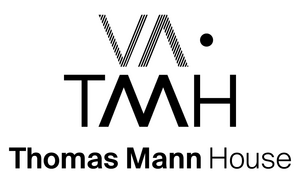Thomas Mann House Events Archive
February 2024
"Trust in Museums" – Presentation & Workshop with Sunhild Kleingärtner & Guests
Thomas Mann House
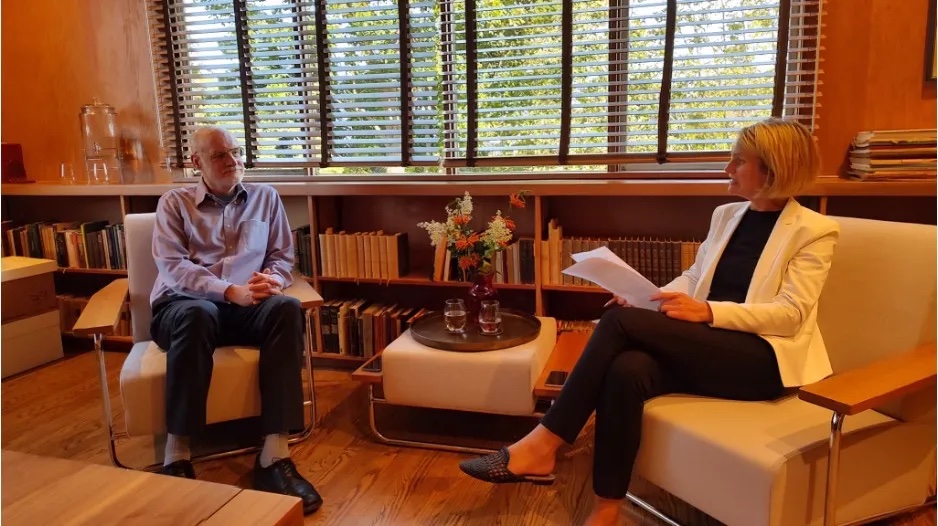
Information
Museums as public institutions play an important role in the presenting, conserving, and shaping of cultural narratives. In today’s politically charged times, it is not easy for museums to navigate the political discourses that are quickly and constantly changing. At the same time, due to a focus on transparent provenance, research and educational programs, museums still enjoy a great deal of public trust today according to a recent study by the American Alliance of Museums. During her Fellowship, Sunhild Kleingärtner, an archaeologist with museum-based expertise, conducted interviews with experts in the USA and Germany, exploring political issues pertinent to the question of museums as trusted institutions. Is it even possible to think of museums as inherently nonpolitical? What are key factors that foster trust in museums?
On February 1, Kleingärtner will visit Los Angeles again to present and discuss the results of her project, followed by a conversation with colleagues and students at the Thomas Mann House.
By Invitation Only.
Participant

Sunhild Kleingärtner is a German historian and archaeologist. From 2013 to 2021 she was Director of the German Maritime Museum Bremerhaven and Professor of Maritime History and Maritime Archaeology at the University of Bremen. In 2022, she was a Fellow at the Thomas Mann House in Los Angeles, working on trust in museums and how museums can actively contribute to a resilient society. Since 2022 she is the Director of the Deutsches Bergbau-Museum Bochum and holds a professorship in archaeology with a focus on museum-related transfer.
The Power of Protest: Nalleli Cobo & Friedemann Karig in Conversation
Los Angeles
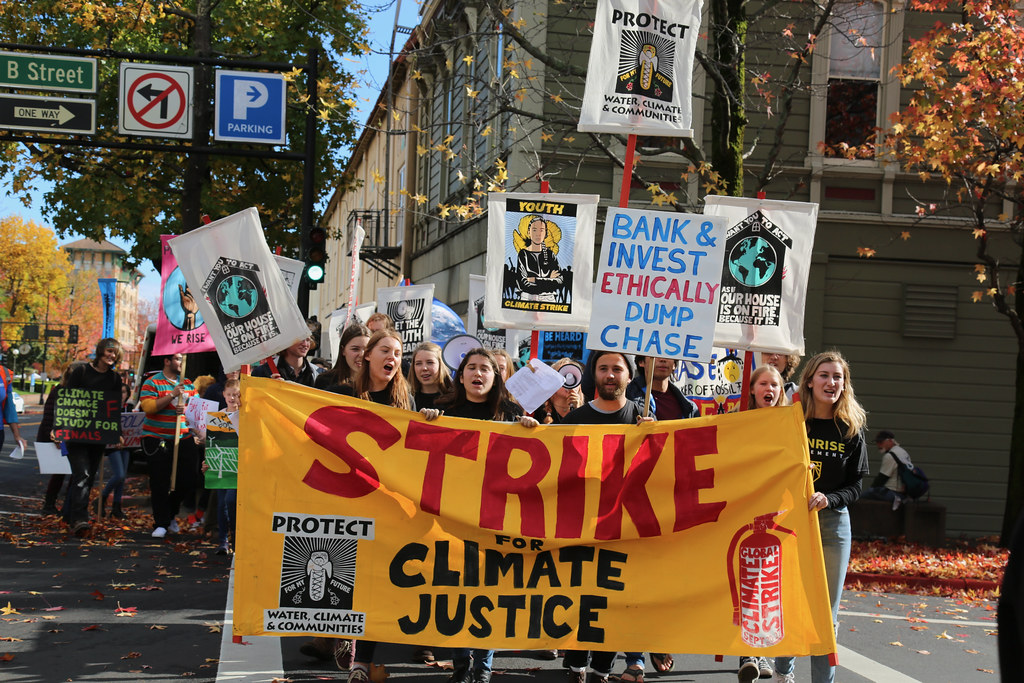
Informationn
With the rise of rightwing populism in Western democracies, the question of efficient and sustainable forms of protest is more relevant than ever. What kind of instruments, methods and structures are useful for which specific struggle? In an attempt to bring protest theory and practice in conversation and to bring about to new ideas and synergies, our fellow Friedemann Karig and environmental activist Nalleli Cobo will talk about protest cultures not as a sudden emotional outburst, but as a cool-headed political strategy. What are differences between the U.S. and Germany when it comes to protest movements and how they influence political discourse via civil disobedience? What are the important protest groups in the years to come? What can we learn from successful protests in Germany and the U.S. over the past years and what makes a protest actually successful?
After two short presentations from a German and an U.S. perspective, Friedemann will engage in a conversation with Nalleli Cobo, followed by a Q&A with the audience.
During his fellowship, Friedemann Karig will examine protest cultures in the United States. Through the lens of Henry David Thoreau’s term “civil disobedience,” he will explore movements such as the Civil Rights Movement, Black Lives Matter, and others.
The event will take place at the Thomas Mann House on February 15.
Participants

Nalleli Cobo led a grassroots campaign to permanently shut down a toxic oil well in her community. Cobo, 22, grew up in South Los Angeles and started engaging in activism at age 9. Over the years, she endured headaches, nosebleeds and heart palpitations caused by pollution from the well in her community. She gave her first public speech at age 10. Even as a child, her skills as an orator caught others’ attention and paved the way for her to eventually become the leading spokesperson for banning oil extraction in Los Angeles. She co-founded People Not Pozos, an organization that aims to secure a safe and healthy neighborhood, and the South Central Youth Leadership Coalition, which focuses on ending environmental racism in Los Angeles. In March 2020, her organizing culminated in the definitive closure of the AllenCo drilling site across the street from her childhood home. She was diagnosed with cancer at the age of 19. After three surgeries and medical treatment, she was declared cancer-free. Her story and leadership also inspired the enactment of SB 1137, which bans all new oil wells within 3200 feet of communities in California. She won the 2022 Goldman Environmental Prize and was named on the 2022 Time 100 Next list.
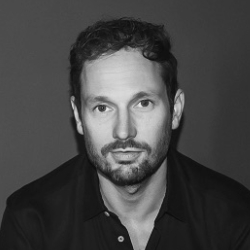
Friedemann Karig is a journalist, author, and moderator from Berlin. He studied media science, politics, and economics and has written for Süddeutsche Zeitung, Die Zeit, Spiegel Online, and Deutschlandfunk, among others. His nonfiction book Wie wir lieben (How We Love) was published by Blumenbar in 2017, followed by his debut novel Dschungel (Ullstein, 2019) and the nonfiction bestseller Erzählende Affen: Mythen, Lügen, Utopien – Wie Geschichten unser Leben bestimmen (Narrating Apes: Myths, Lies and Utopias - How Stories Determine Our Lives) (Ullstein, 2021). His novel Die Lügnerin (The Lyer) was be published in September 2023 by Ullstein. During his fellowship, Friedemann Karig will examine protest cultures in the United States. Taking as his starting point Henry David Thoreau’s term "civil disobedience," he will look at the civil rights movement and Black Lives Matter, among other movements.
East-German Artistic Networks of the 1980s: Lecture & Conversation with Stephanie Barron, Constanze Fritzsch, and Isotta Poggi
Thomas Mann House

Information
In the last decade of the East German regime, artists wove dynamic networks to exchange art and ideas. They built alternative communication channels through artists’ books and magazines that together are a remarkable memory of the spirit of the time. Most of these publications (called samizdat for “self-published” in Russian) are collaborative projects of artists’ groups or collectives who produced small editions to circumvent censorship, while also to celebrate mutual friendship and solidarity in a playful atmosphere of experimentation.
On the fifth anniversary of Edition Augenweide, Jörg Kowalski wrote that it was not so much political ambitions that inspired the making of the first book, but rather the longing for that atmosphere of openness and trust that is necessary for art to flourish. This group’s aim was to draw on book art traditions of the twenties while finding an innovative synthesis between literary content and art design. These artistic and literary projects provided a forum outside of the official discourse of the GDR and developed a new literary and visual language that would defy artistic dogmas.
These rare editions, combining a variety of original graphic media on paper and vintage photographs with poetry and prose, offer an opportunity for interdisciplinary dialogue on a period of transformation and reform that ended with a peaceful revolution and the fall of the Berlin wall in November 1989.
As part of the Thomas Mann House annual topic "Democracy & Vulnerability," it is crucial to revisit and reconsider these artists. The independent artistic and cultural networks resonate with the debates of writers and artists in the Thomas Mann House who sought creative spaces while in exile and means of creating art outside of censorship. Los Angeles hosted the innovative exhibition “Art of Two Germanys ” organized by LACMA in 2009 and is home to the Wende Museum, which focuses on Cold War history. These resources provide an opportunity for dialogue on the past and the present about the artistic and existential debates that contributed to and shaped a period of historical reform and transformation. They can shed new light on East Germany’s forgotten (or ignored) history.
Join acclaimed curators and art historians Stephanie Barron, Constanze Fritzsch, and Isotta Poggi for a conversation on how these materials are vibrant witnesses of a generation who made art to find a voice.
Participants
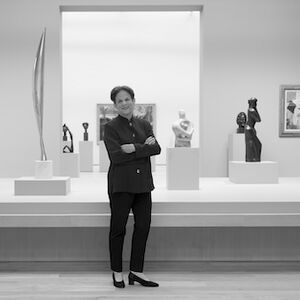
Stephanie Barron is Senior Curator and Modern Art Department Head at LACMA. Among her exhibitions and publications over the past 40 years are The Russian Avant- Garde: 1910-1930: New Perspectives; German Expressionist Sculpture; ’Degenerate Art’: The Fate of the Avant-Garde in Nazi Germany; Exiles + Émigrés- The Flight of European Artists from Hitler; Art of Two Germanys/Cold War Cultures, New Objectivity: Modern German Art in the Weimar Republic, 1919-1933, and exhibitions of Alexander Calder, Marc Chagall, Frank Gehry, David Hockney, Ed Kienholz, Sharon Lockhart, John McLaughlin, Rene Magritte, and Ken Price. She has received the Order of Merit, First Class and the Commander’s Cross from the German government in recognition of her work in the field of modern German art. Her exhibitions and publications have five times been voted the best in the United States by the International Art Critics Association, three times by the Art Museum Curators Association, and she has twice received the College Art Association’s Alfred H. Barr Jr. Award for best museum catalog. A long standing member of the Art Advisory Panel of the IRS, she is a fellow of the Academy of Arts and Sciences, and trustee of the John Baldessari Foundation, past chair of the Mike Kelley Foundation, and serves on the board of The Industry Los Angeles.
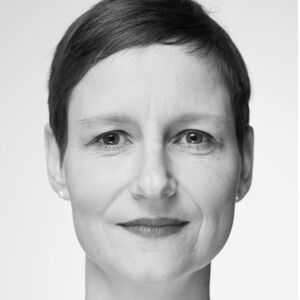
Constanze Fritzsch is a Fulbright Fellow at the GRI. She holds a doctorate from the Catholic University in Eichstätt-Ingolstadt after getting her MA in art history from the University Paris Nanterre and her BA in art history from University Paris 1 Panthéon-Sorbonne. She got a fellowship of the ENS de Paris as a foreign exchange student. She is a former member of the “Á chacun son reel” research project run by the German Forum for Art History in Paris and worked as an assistant curator at the Staatliche Kunstsammlungen Dresden. She has been on the academic staff at the Bauhaus University in Weimar, the Academy of Fine Arts in Dresden and the University of Leipzig and Dresden, and worked as a student assistant at the Institut National d’Histoire de l’Art in Paris.
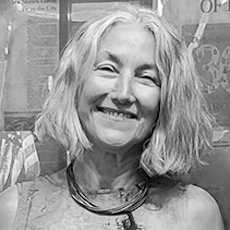
Isotta Poggi is associate curator of photographs at the Getty Research Institute in Los Angeles. Her collecting interests focus on the cultural history of photography from the nineteenth century through contemporary, as a medium for documentary and artistic practice, and as a narrative tool in albums, photobooks, and artists’ books. In 2018 she co-curated the exhibition Promote, Tolerate, Ban: Art and Culture in Cold War Hungary at the Wende Museum, and co-edited the accompanying volume. Drawing on the extensive archival holdings and special collections of the Getty Research Institute, she is currently directing the research project “On the Eve of Revolution: The East German Artist in the 1980s.”
Partners
This event is a collaboration between the Getty Research Institute and Villa Aurora & Thomas Mann House.


Student Council on "Democracy and Vulnerability" – with Friedemann Karig
Online
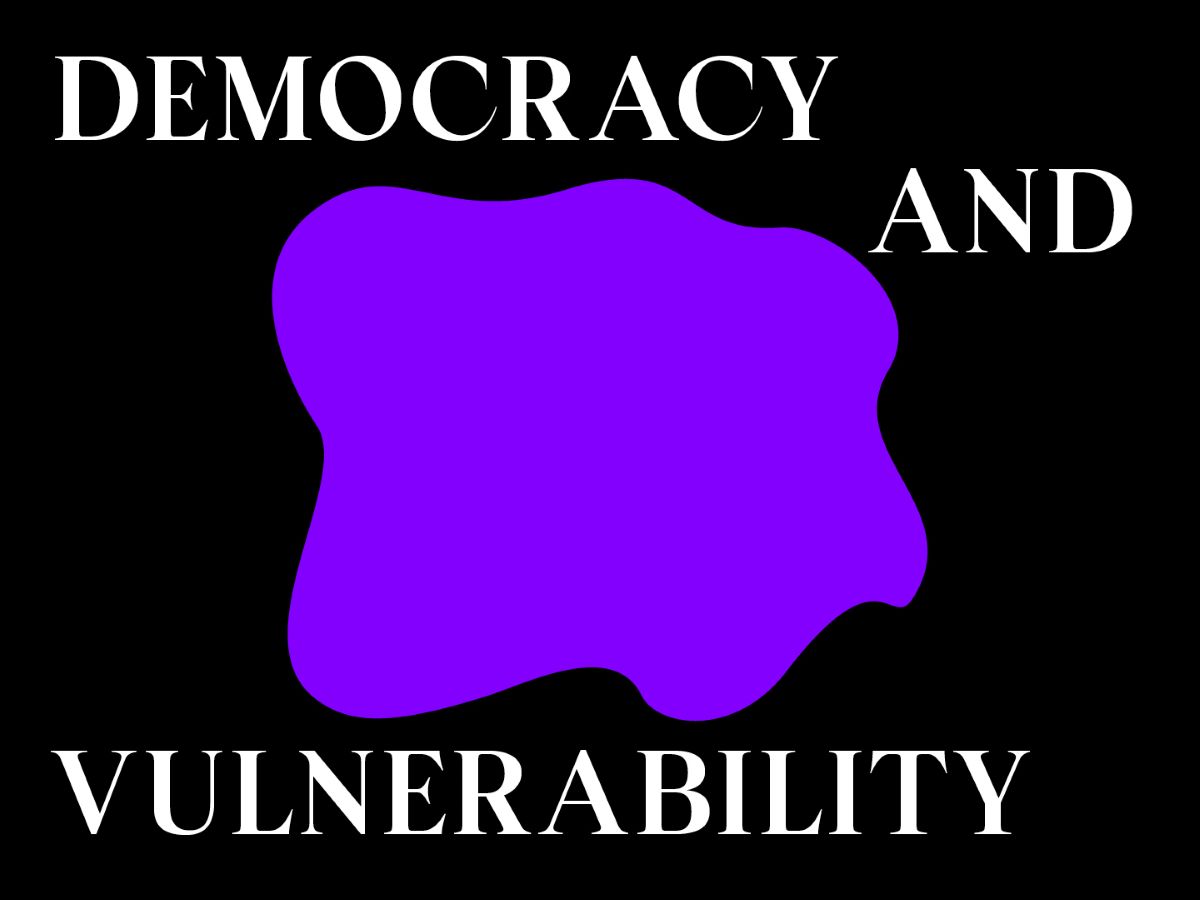
Information
Join the Wende Museum, the Thomas Mann House, and dublab radio for the second program in the series on the current state of democracies. How should a democracy deal with its own vulnerabilities? How do democracies need to evolve to deal successfully with increasing global levels of ecological crisis, geopolitical tensions, economic disparities, and culture wars? How much vulnerability can a democracy endure? The Student Council consists of a team of highly engaged, talented, and diverse undergraduate and graduate students who invite prominent guest speakers to discuss topics relating to society, politics, culture, and art. In conversation with academics, journalists, politicians, and artists, the students will explore the various threats to democratic institutions and principles worldwide, as well as strategies to potentially overcome these threats.
Participant
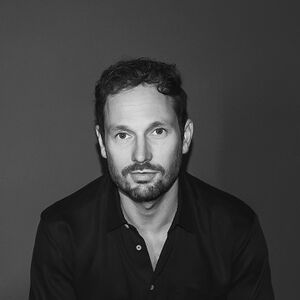
The guest speaker for our February program is Friedemann Karig, journalist, author, and moderator from Berlin. He has written for several leading German newspapers and magazines, including Süddeutsche Zeitung, Die Zeit, and Spiegel Online, among others. His nonfiction book Wie wir lieben (The Way We Love) was published in 2017, followed by his debut novel Dschungel (Jungle, 2019) and the nonfiction bestseller Erzählende Affen: Mythen, Lügen, Utopien – Wie Geschichten unser Leben bestimmen (Talking Monkeys: Myths, Lies, Utopias – How Stories Determine Our Lives, 2021). His most recent novel, Die Lügnerin (The (Female), Liar) was published in September 2023. Karig is a 2024 Thomas Mann House Fellow. During his fellowship in Los Angeles, he will examine protest cultures in the United States. Taking as his starting point Henry David Thoreau’s term “civil disobedience,” he will look at the civil rights movement and Black Lives Matter, among other protest movements.
Watch our January interview with Thomas Mann Fellow, curator, and media studies scholar Sophie-Charlotte Opitz!
You can watch previous episodes on YouTube, listen to the recordings on dublab radio, or read our students' recap on the Thomas Mann House blog.
Meet the 2024 Student Council
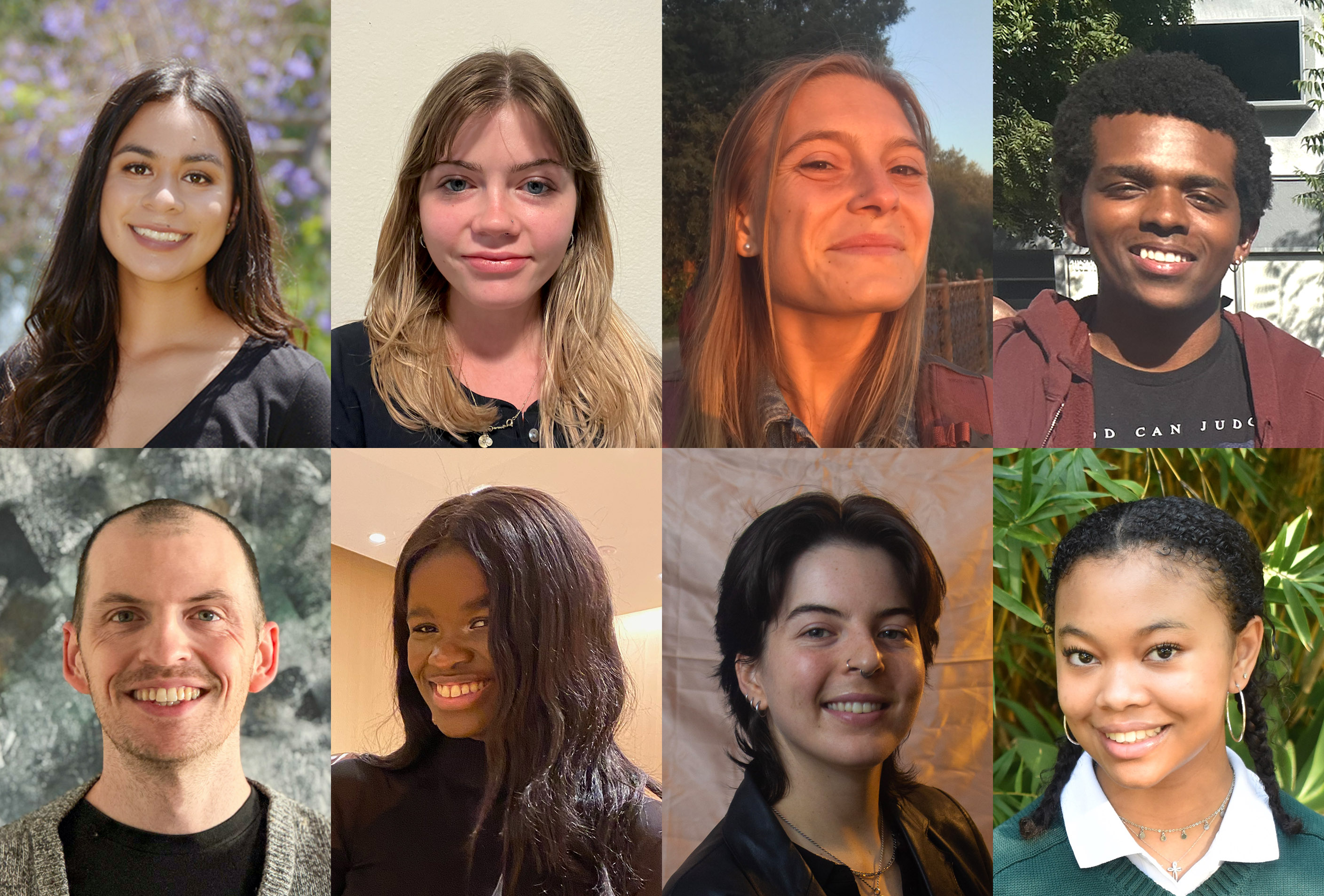
Sara Abrahamsson is a fourth-year student at UCLA studying Art History and French. As a culmination of her artistic and academic interest in political graphics, Sara is currently writing her senior thesis paper on the internationalist poster art of post-revolutionary Cuba. Upon graduating, she plans to continue working in museums before pursuing graduate studies in Art History or Art Conservation.
Amy Cabrales is a First-Generation fourth-year undergraduate student at UCLA, studying Sociology and the Russian Language. She is a Mexican-American, Los Angeles native born in Lynwood, California. Her career interests include cross-cultural education via museum work or language instruction and immigrant resettlement, while her academic interests include immigrant integration and self-identity across immigrant generations. She is anticipating returning to Almaty, Kazakhstan for the 2024-25 academic year to inform these interests and advance her Russian proficiency.
Elsa Coony is a fourth-year student at the University of California, Los Angeles double majoring in Global Studies and German. She has previously worked at the United States Holocaust Memorial Museum as both a docent and translator and is excited to join this year's council. In the future, she hopes to pursue a career in international development.
Biruke Dix is currently a 2nd year student at UCLA studying Applied Mathematics. He joined the Wende Student Council in 2024 and is deeply invested in the ever-changing properties of art as well as social habits. He hopes that he can create language and conversation that promotes the spread of cultural shifts and social justice.
Matthew Jones is a third-year PhD student in Claremont Graduate University’s Cultural Studies and Museum Studies program. His research currently explores how sites connected to authoritarian regimes function as pilgrimage destinations and what strategies states and institutions employ to reduce extremist attachment at these sites. He is thrilled to continue his training with the Wende Museum through this collaboration with the Thomas Mann House.
Emma Larson is a master's student at Columbia University's Harriman Institute of Russian, Eurasian, and Eastern European Studies. There, she focuses on the gender, social, and political history of Central Asia. Before starting at Columbia, Emma taught English in Kazakhstan with the Fulbright Program. She graduated from Williams College with degrees in History and Russian in 2021.
Zora Nelson is a current undergraduate student at New York University, where she is studying Harp Performance and Media, Culture, and Communication. As an east coaster born and raised in Philadelphia, Pennsylvania, she discovered the Wende Museum in the summer of 2022 and is honored to be a part of the council. With a passion for writing, Zora sees a future in storytelling to promote social justice.
Lexi Tooley is a current sophomore at the University of Pennsylvania majoring in Political Science and Art History, minoring in Chinese Language and Culture. She is originally from Los Angeles, California, and attended the Archer School for Girls. Lexi has been working with the Wende Museum for the past 2 years. She looks forward to continuing the search for truth and examining the vulnerability of democracy through this program!
Partners
The event series is a collaboration with the Wende Museum Culver City, dublab and the Thomas Mann House Los Angeles.
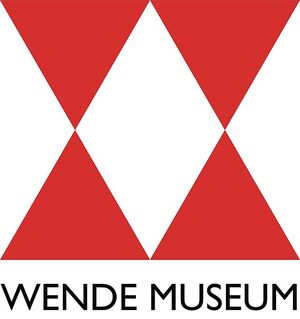
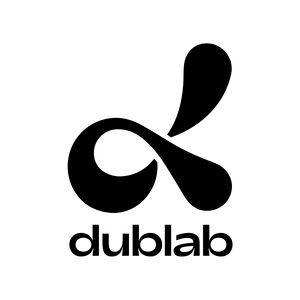

Czech Painters of California: Presentation with Consul General Jaroslav Olša, Jr.
Thomas Mann House

Information
"Even more do I owe thanks to the Republic of Czechoslovakia, which most generously made a gift of its citizenship to me who was robbed of my German nationality. Especially at this moment, when the heavens of central Europe are darkening so threateningly, it is a heartfelt necessity to give expression to my faithful loyalty to this courageous and lovable democratic republic,“ wrote Thomas Mann in his lecture The Coming Victory of Democracy in 1938, publicly expressing his gratitude to Czechoslovakia. But also beyond Mann’s personal friendship with former Czechoslovakian President Edvard Beneš, many refugees from Czechoslovakia were an integral part of the émigré community of German-speaking exiles in 1930s and 1940s Los Angeles. Jaroslav Olša, Jr., Consul General of the Czech Republic in Los Angeles, will present on the recent publication and exhibition Czech Painters of California and excavate artworks and interwoven histories. After the presentation there will be time for a conversation and a light reception. With opening remarks by the Thomas Mann House.
Participant

Jaroslav Olša Jr. is a Czech diplomat whose posts include those of Ambassador to Zimbabwe (2000–2006), South Korea (2008–2014) and the Philippines (2014–2018), and Consul General in Los Angeles (2020–current); author of books on history, art and literature of Asia and Africa. He is also science fiction editor, translator and bibliographer. He is also the author of books and articles on history, culture and literature of Asia and Africa and historical relations of the non-European countries with the Czech Lands. He has also widely published about science fiction and edited over a dozen anthologies of Czech and international science fiction. He has published in a wide-range of publications such as Czech edition of National Geographic, Nový Orient (New Orient), Světová literatura (World Literature), Mezinárodní politika (Foreign Policy), Mezinárodní vztahy (International Relations). Contributor to various Czech and foreign-language encyclopedias. He was also a curator of art exhibitions, member of the jury of 2011 Bucheon International Fantastic Film Festival, and initiated numerous cultural exchanges and activities.
Partners
This event is a collaboration between the Consulate General of the Czech Republic in Los Angeles & the Thomas Mann House Los Angeles.

